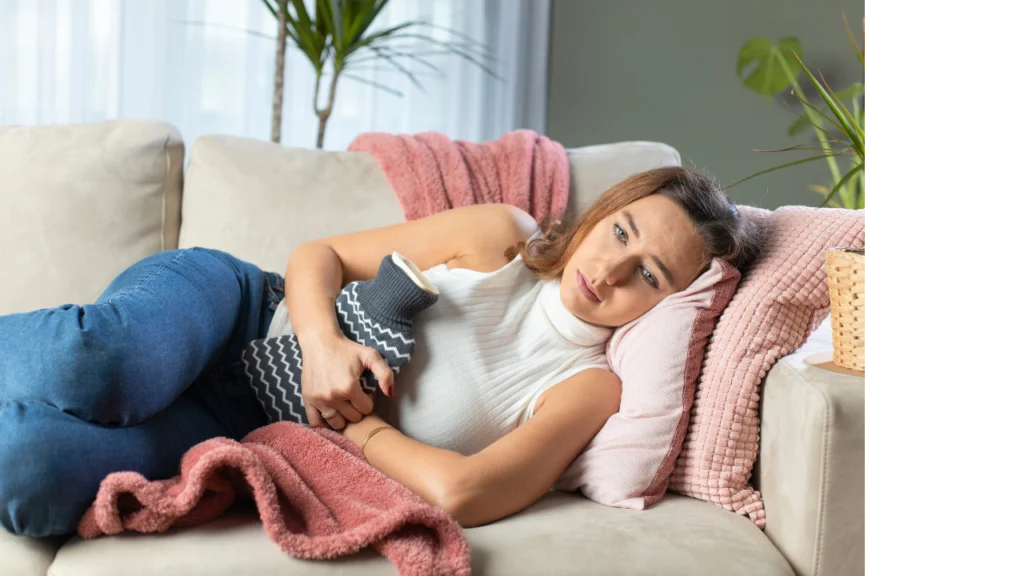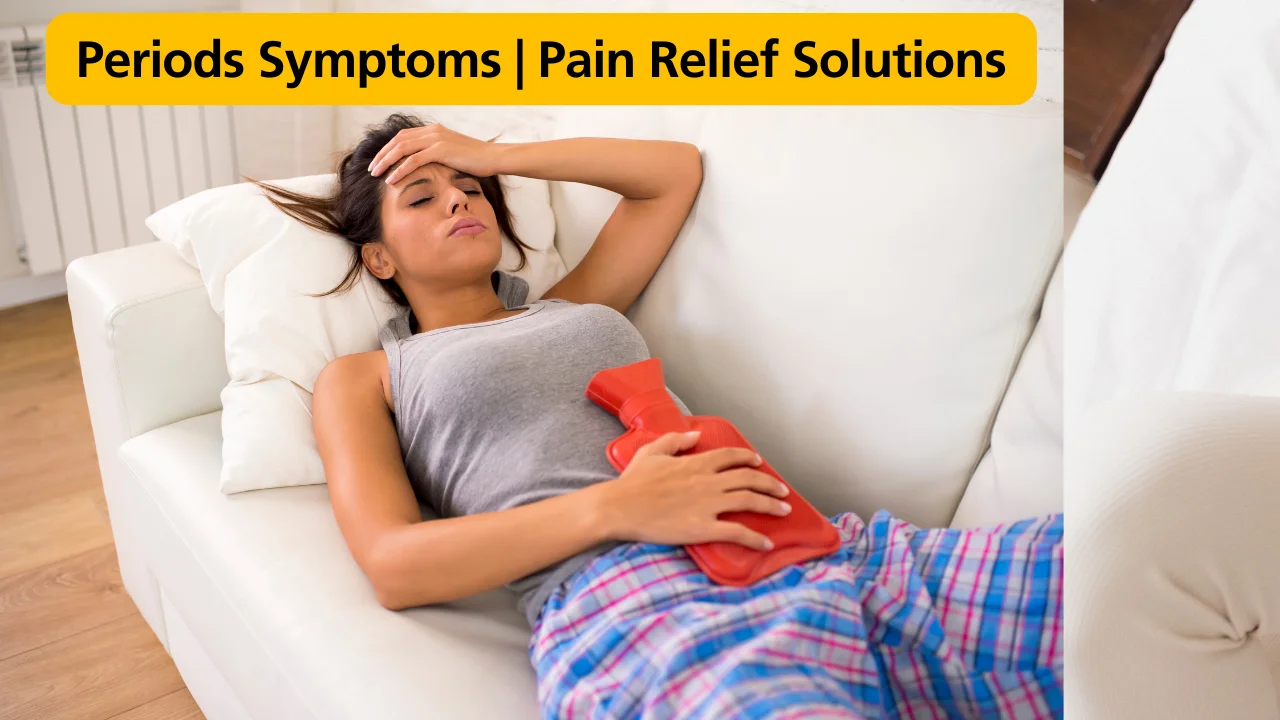Introduction
Understanding period symptoms and finding effective pain relief solutions is crucial for individuals experiencing menstruation. This article aims to delve into common symptoms associated with periods and explore various strategies for managing menstrual pain.
What are Periods?
Periods, or menstruation, refer to the monthly shedding of the uterine lining in females of reproductive age. It is a natural process regulated by hormonal changes in the body.
Importance of Understanding Periods Symptoms
Recognizing and understanding period symptoms is essential for promoting overall well-being and managing discomfort effectively.
Common Period Symptoms

Period symptoms can vary from person to person but often include:
Menstrual Cramps
Menstrual cramps, also known as dysmenorrhea, are characterized by abdominal pain and discomfort before or during menstruation.
Bloating
Many individuals experience bloating during their periods, which is caused by hormonal changes and water retention.
Mood Swings
Fluctuations in hormone levels can lead to mood swings, irritability, and emotional sensitivity during menstruation.
Fatigue
Fatigue is a common symptom of periods, often attributed to hormonal fluctuations and increased physical exertion.
Understanding Period Pain

Causes of Menstrual Pain
Menstrual pain is primarily caused by uterine contractions as the body sheds the uterine lining during menstruation. Hormonal imbalances and underlying health conditions can exacerbate pain.
Types of Menstrual Pain
Menstrual pain can manifest as cramping, dull aches, or sharp pains in the lower abdomen and pelvic region.
Natural Remedies for Period Pain

Heat Therapy
Applying heat to the lower abdomen can help relax muscles and alleviate menstrual cramps. Hot water bottles or heating pads are commonly used for heat therapy.
Herbal Teas
Certain herbal teas, such as chamomile or ginger tea, have anti-inflammatory properties that may reduce period pain and discomfort.
Exercise
Engaging in regular physical activity, such as walking or yoga, can help alleviate menstrual pain by promoting blood flow and releasing endorphins.
Over-the-Counter Solutions
Pain Relievers
Over-the-counter pain relievers like ibuprofen or acetaminophen can effectively reduce menstrual cramps and discomfort.
Menstrual Relief Patches
Menstrual relief patches, applied to the abdomen, contain ingredients like menthol or lidocaine to provide localized pain relief.

Lifestyle Changes for Period Relief
Diet Modifications
Consuming a balanced diet rich in fruits, vegetables, and whole grains while limiting caffeine and alcohol intake can help reduce period symptoms.
Stress Management
Practicing stress-reduction techniques such as deep breathing exercises, mindfulness, or meditation can alleviate menstrual discomfort.
Adequate Sleep
Prioritizing sufficient sleep during menstruation can help regulate hormone levels and improve overall well-being.
Alternative Therapies
Acupuncture
Acupuncture involves the insertion of thin needles into specific points on the body to alleviate pain and promote relaxation, potentially easing menstrual symptoms.
Yoga
Yoga poses designed to stretch and strengthen the pelvic muscles can help reduce menstrual pain and improve circulation.
Meditation
Mindfulness meditation techniques can help individuals manage pain perception and reduce stress associated with menstrual symptoms.
Medical Interventions

Birth Control Pills
Certain hormonal contraceptives, such as birth control pills, can regulate menstrual cycles and alleviate symptoms like cramps and heavy bleeding.
Hormonal Therapy
Hormonal therapy, prescribed by a healthcare professional, may be recommended for individuals with severe menstrual pain or hormonal imbalances.
When to Seek Medical Help
Signs of a Problem
Persistent or severe menstrual pain, abnormal bleeding, or other concerning symptoms warrant medical attention.
Consulting a Healthcare Professional
If period symptoms significantly interfere with daily activities or quality of life, consulting a healthcare provider is advisable for proper diagnosis and treatment.
Conclusion
Managing period symptoms and finding effective pain relief solutions is essential for individuals experiencing menstruation. By understanding common symptoms, exploring various remedies, and seeking medical guidance when necessary, individuals can better cope with menstrual discomfort and improve their overall well-being.
FAQs
1. Can menstrual pain be a sign of a more serious health condition?
A: While menstrual pain is common, severe or persistent pain could indicate underlying health issues such as endometriosis or fibroids. It’s essential to consult a healthcare professional if you experience unusually severe symptoms.
2. Are there any natural remedies for menstrual bloating?
A: Yes, certain herbal teas like peppermint or dandelion tea may help alleviate bloating associated with menstruation. Additionally, avoiding salty foods and staying hydrated can reduce bloating.
3. How long do period symptoms typically last?
A: Period symptoms can vary in duration and intensity from person to person. Generally, symptoms may start a few days before menstruation and subside within a few days after the period ends.
4. Is it normal to experience mood swings during menstruation?
A: Yes, mood swings are a common symptom of menstruation due to hormonal fluctuations. Engaging in stress-reduction techniques and maintaining a healthy lifestyle can help manage mood changes.
5. Can exercise worsen menstrual cramps?
A: While some individuals may find vigorous exercise exacerbates menstrual cramps, gentle activities like walking or yoga can often alleviate pain and promote relaxation. It’s essential to listen to your body and choose activities that feel comfortable during menstruation.
